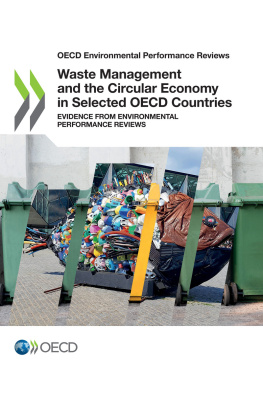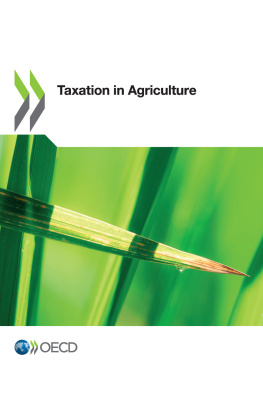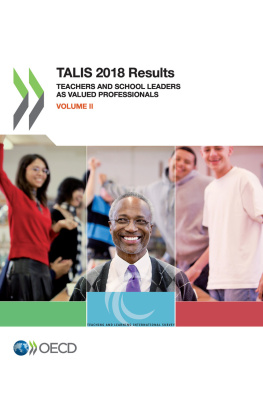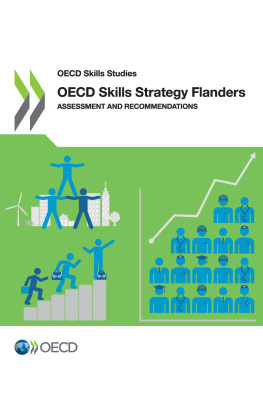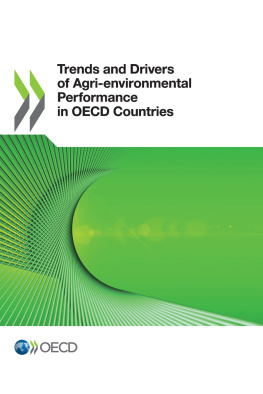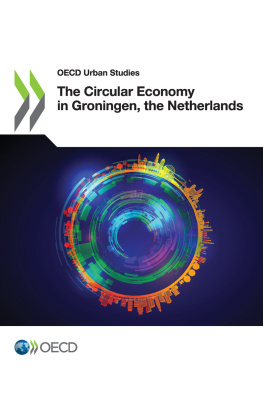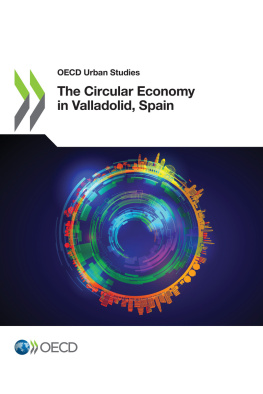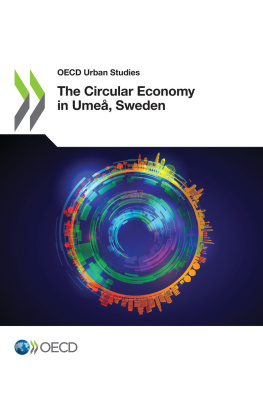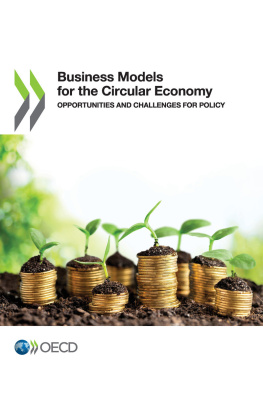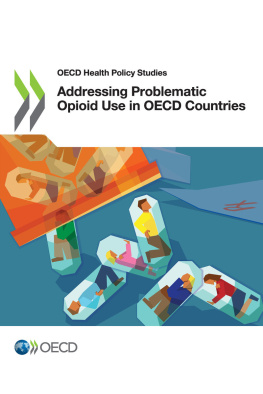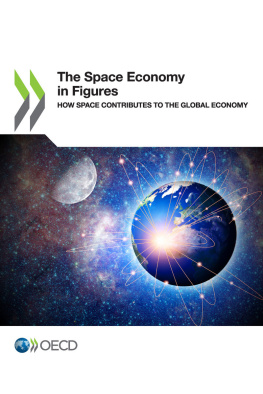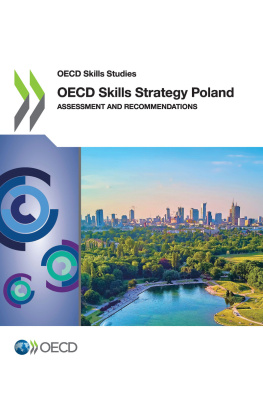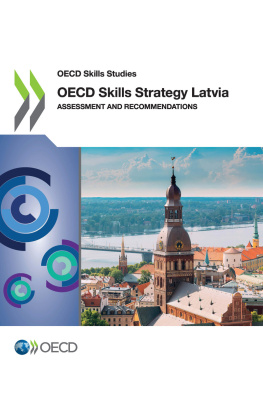OECD - Waste Management and the Circular Economy in Selected OECD Countries
Here you can read online OECD - Waste Management and the Circular Economy in Selected OECD Countries full text of the book (entire story) in english for free. Download pdf and epub, get meaning, cover and reviews about this ebook. year: 2019, publisher: OECD Publishing, genre: Politics. Description of the work, (preface) as well as reviews are available. Best literature library LitArk.com created for fans of good reading and offers a wide selection of genres:
Romance novel
Science fiction
Adventure
Detective
Science
History
Home and family
Prose
Art
Politics
Computer
Non-fiction
Religion
Business
Children
Humor
Choose a favorite category and find really read worthwhile books. Enjoy immersion in the world of imagination, feel the emotions of the characters or learn something new for yourself, make an fascinating discovery.
Waste Management and the Circular Economy in Selected OECD Countries: summary, description and annotation
We offer to read an annotation, description, summary or preface (depends on what the author of the book "Waste Management and the Circular Economy in Selected OECD Countries" wrote himself). If you haven't found the necessary information about the book — write in the comments, we will try to find it.
OECD: author's other books
Who wrote Waste Management and the Circular Economy in Selected OECD Countries? Find out the surname, the name of the author of the book and a list of all author's works by series.
Waste Management and the Circular Economy in Selected OECD Countries — read online for free the complete book (whole text) full work
Below is the text of the book, divided by pages. System saving the place of the last page read, allows you to conveniently read the book "Waste Management and the Circular Economy in Selected OECD Countries" online for free, without having to search again every time where you left off. Put a bookmark, and you can go to the page where you finished reading at any time.
Font size:
Interval:
Bookmark:
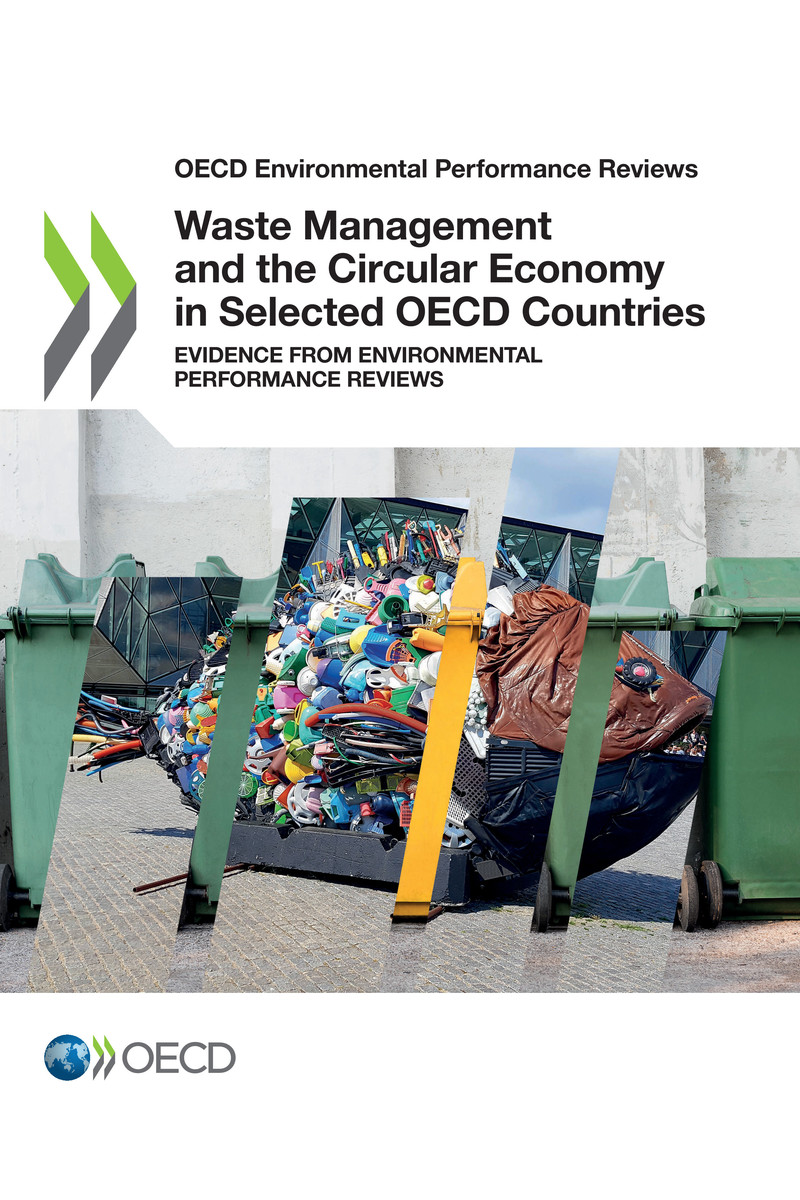
OECD (2019), Waste Management and the Circular Economy in Selected OECD Countries: Evidence from Environmental Performance Reviews , OECD Environmental Performance Reviews, OECD Publishing, Paris, https://doi.org/10.1787/9789264309395-en .
Recent decades have witnessed an unprecedented growth in demand for natural resources and materials. Globally, the use of material resources grew from 27 billion tonnes in 1970 to 89 billion tonnes in 2017 and it is projected to increase further to 167 billion tonnes in 2060 (OECD Global Material Resources Outlook to 2060). The environmental consequences of material use will be magnified with the projected doubling of greenhouse gas emissions, pollution to the soil, water and air and damaging effects on ecosystems. Against this background, there is a growing imperative to transition to a more resource efficient and circular economy.
This report summarises key findings and lessons learned in the area of waste, materials management and the circular economy from OECD Environmental Performance Reviews conducted in 11 countries between 2010 and 2018: Japan (2010); Israel (2011); Norway (2011); Slovenia (2012); Colombia (2014); Netherlands (2015); Poland (2015); Korea (2017); Estonia (2017); Hungary (2018) and Czech Republic (2018).
Over this period, countries have become increasingly engaged in promoting policies that encourage greater resource efficiency. The report highlights that countries have improved their material productivity and waste management practices in the last two decades. Countries have also strengthened their policies with regulatory changes and economic instruments, mainly designed to drive waste away from landfills, increase recycling and reduce waste generation. However, the report stresses that more work need to be done. Many countries still lack effective institutional arrangements and accurate data to implement a coherent circular economy transition. Enforcement and compliance promotion remain important challenges, even in countries with advanced waste management practices.
The report builds on the wealth of policy analysis of Environmental Performance Reviews and Information. For some countries, information may be more recent than others. Still, the policy recommendations emerging from the reviews provide useful lessons for other jurisdictions. It is the result of a constructive dialogue of participating countries in the OECD Working Party of Environmental Performance. I am confident that this effort will be helpful to exchange on good practices and solutions to improve the transition to a resource efficient and circular economy.

Rodolfo Lacy
Director, OECD Environment Directorate
The OECD Environmental Performance Review Programme has been supporting member and partner countries in developing effective environmental policies for nearly 30 years. The principal aim of the programme is to:
support countries evaluate progress in achieving their environmental goals;
promote continuous policy dialogue and peer learning; and
stimulate greater accountability from governments towards each other and public opinion.
The thematic reports developed under the Environmental Performance Review Programme contribute to these objectives by summarising experience and lessons learned from country specific Environmental Performance Reviews.
This report provides a cross-country overview of waste, materials management and circular economy policies in selected OECD countries and Colombia, drawing on OECDs Environmental Performance Reviews during the period 2010-17. It presents the main achievements in the countries reviewed, along with common trends and policy challenges and provides insights into the effectiveness and efficiency of waste, materials management and circular economy policy frameworks. As the reviews were published over seven years, information on policies for some countries may be more recent than others and some information may be outdated. Nevertheless, the policy recommendations emerging from the reviews may provide useful lessons for other OECD and partner countries. The chapter on Trends in materials consumption and waste generation is based on data available up to April 2018 provided across all OECD countries where available.
The authors of the report are Tony Zamparutti, Alicia McNeill and Sarah OBrien of Milieu Consulting. Nathalie Cliquot of the Environment Directorate co-ordinated its preparation. Nathalie Girouard, Head of the Environmental Performance and Information Division, OECD Environment Directorate provided oversight and guidance. The report benefited from contribution of Environment Directorate colleagues including Myriam Linster, Frederique Zegel and Peter Brkey. Sarah Miet provided statistical support and Annette Hardcastle and Natasha Cline-Thomas prepared the report for publication.
Font size:
Interval:
Bookmark:
Similar books «Waste Management and the Circular Economy in Selected OECD Countries»
Look at similar books to Waste Management and the Circular Economy in Selected OECD Countries. We have selected literature similar in name and meaning in the hope of providing readers with more options to find new, interesting, not yet read works.
Discussion, reviews of the book Waste Management and the Circular Economy in Selected OECD Countries and just readers' own opinions. Leave your comments, write what you think about the work, its meaning or the main characters. Specify what exactly you liked and what you didn't like, and why you think so.

